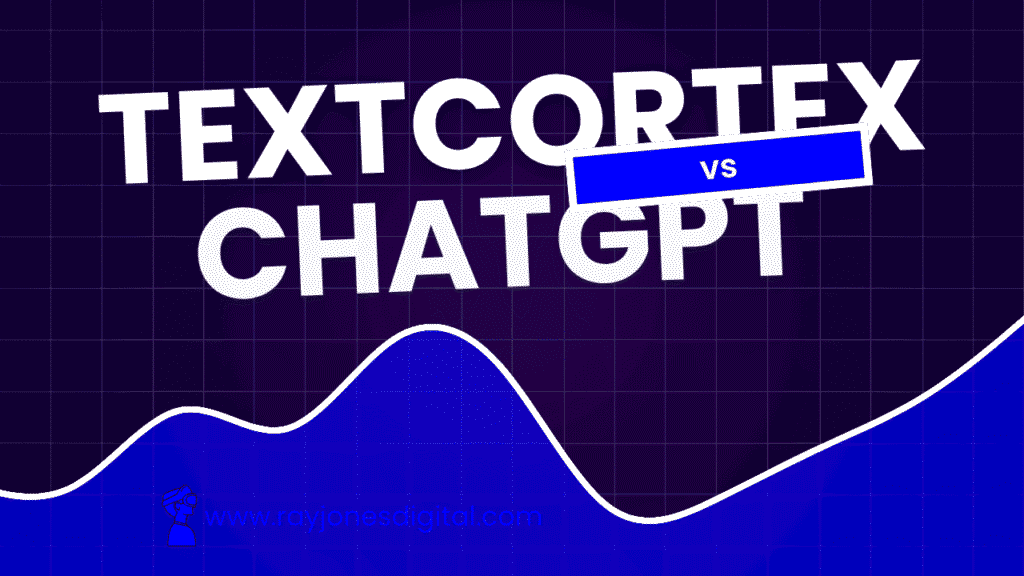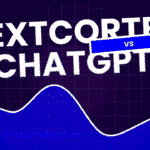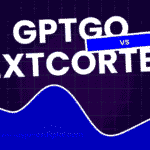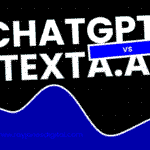
AI writing tools have transformed how content creators, marketers, and businesses approach content production. Whether you’re managing a blog, crafting marketing copy, or automating your content strategy, choosing the right AI writing assistant can significantly impact your productivity and results.
Two prominent players in the AI writing space are Texta.ai and TextCortex. Both platforms promise to streamline content creation, but they take distinctly different approaches to solving writing challenges. Texta.ai focuses heavily on blog automation and SEO-optimised content, while TextCortex positions itself as a comprehensive AI writing assistant for various content types.
This detailed comparison examines their features, pricing, performance, and ideal use cases. By the end, you’ll understand which platform aligns best with your content goals, budget, and workflow requirements.
Understanding Modern AI Writing Needs
The demand for AI writing tools has exploded as businesses recognise the need for consistent, high-quality content at scale. Content creators face mounting pressure to produce engaging material across multiple platforms whilst maintaining quality and SEO performance.
Modern AI writing tools must balance several key requirements: generating authentic, engaging content that resonates with human readers, optimising for search engines, and integrating seamlessly into existing workflows. Additionally, the rise of content automation has created demand for tools that can handle entire content pipelines, from ideation to publication.
The challenge lies in finding platforms that deliver on these promises without sacrificing quality or requiring extensive manual editing. Both Texta.ai and TextCortex aim to address these needs, but their approaches differ significantly.
Texta.ai: The SEO-Focused Content Automation Platform
Texta.ai has positioned itself as the premier solution for automated blog content creation. The platform’s core strength lies in its ability to generate, optimise, and publish SEO-friendly blog posts with minimal human intervention.
Core Features and Capabilities
AI Blog Writer: Texta.ai’s flagship feature generates comprehensive blog articles tailored to specific topics and keywords. The tool creates well-structured, search engine-friendly content that follows logical narrative flows to maintain reader engagement.
AutoBlog Automation: The platform’s standout feature allows users to schedule and automatically publish blog posts. This autopilot functionality enables businesses to maintain consistent content output without daily management.
Smart Linking System: Texta.ai automatically incorporates internal and external links within generated content. The system identifies relevant connections between articles and adds timely external links to current news and resources.
SEO Keyword Research: The platform includes built-in keyword research capabilities, automatically identifying and incorporating relevant keywords to improve search engine rankings.
Content Integration: Texta.ai seamlessly integrates with popular content management systems including WordPress, Shopify, Webflow, and Wix, enabling direct publishing to websites.
Media Enhancement: Generated articles automatically include relevant images and optional YouTube video embeds, creating more engaging content without additional work.
Pricing Structure
Texta.ai offers a tiered pricing model designed to accommodate different usage levels:
- Free Trial: 7-day full access trial with no credit card required
- Basic Plan: Starting from competitive monthly rates for individual users
- Professional Plan: Enhanced features for businesses and agencies
- Enterprise Plan: Custom solutions for large organisations
The platform’s pricing reflects its focus on automation and scalability, with higher tiers offering increased automation features and content volume limits.
Target Audience
Texta.ai primarily serves businesses and individuals focused on content marketing through blogging. The platform excels for:
- Small to medium businesses seeking consistent blog content
- Marketing agencies managing multiple client blogs
- E-commerce stores requiring product-focused content
- Professional services firms building thought leadership
- Content creators prioritising SEO performance
TextCortex: The Comprehensive AI Writing Assistant
TextCortex approaches AI writing from a broader perspective, offering a versatile writing assistant that handles various content types beyond blog posts. The platform emphasises flexibility and writing enhancement across multiple use cases.
Core Features and Capabilities
Multi-Purpose Writing Assistant: TextCortex supports numerous content types including emails, social media posts, product descriptions, academic writing, and creative content. This versatility makes it suitable for diverse writing needs.
Advanced Language Models: The platform utilises sophisticated AI models to understand context and generate human-like text across different styles and tones. Users can adjust creativity levels and writing styles to match their requirements.
Real-Time Writing Enhancement: TextCortex offers real-time suggestions and improvements as users write, functioning as an intelligent writing companion rather than just a content generator.
Multilingual Support: The platform supports content creation in multiple languages, making it valuable for international businesses and multilingual content creators.
Integration Capabilities: TextCortex integrates with popular writing platforms and browsers, allowing users to access AI assistance across various applications and websites.
Customisation Options: Users can train the AI to match their specific writing style, tone, and brand voice, creating more consistent and personalised content.
Pricing Structure
TextCortex typically offers:
- Free Tier: Limited daily usage with basic features
- Pro Plans: Monthly subscriptions with increased usage limits
- Business Plans: Team features and higher usage allowances
- Enterprise Solutions: Custom pricing for large organisations
The platform’s pricing model reflects its broad applicability, with costs scaling based on usage volume and advanced features.
Target Audience
TextCortex appeals to a broader range of users including:
- Individual writers and content creators
- Students and academics
- Business professionals creating various content types
- Marketing teams requiring diverse content formats
- International businesses needing multilingual support
Feature Comparison: Automation vs Versatility
The fundamental difference between these platforms lies in their core approach to AI writing assistance.
Content Automation
Texta.ai excels in content automation, offering sophisticated systems for generating, optimising, and publishing blog content without manual intervention. The platform’s AutoBlog feature represents a significant advancement in content automation, enabling businesses to maintain active blogs with minimal ongoing effort.
TextCortex focuses less on automation and more on writing assistance. While it can generate complete articles, its strength lies in helping users improve and enhance their writing in real-time.
SEO and Search Optimisation
Texta.ai integrates SEO considerations throughout its content generation process. The platform automatically researches keywords, optimises content structure, and incorporates strategic linking to improve search engine performance.
TextCortex offers SEO-friendly content generation but doesn’t integrate SEO tools as deeply into its workflow. Users may need to handle keyword research and optimisation manually or through separate tools.
Content Variety and Flexibility
TextCortex provides superior flexibility for diverse content types. The platform handles everything from academic papers to creative writing, making it valuable for users with varied writing needs.
Texta.ai specialises primarily in blog content and related formats. While it produces high-quality blog posts, users requiring diverse content types may find the platform limiting.
Performance and Content Quality
Both platforms generate high-quality content, but their strengths differ significantly.
Content Authenticity and Engagement
Texta.ai focuses on creating blog content that follows logical narrative structures and maintains reader engagement. The platform’s articles typically feature clear introductions, well-organised body sections, and actionable conclusions.
TextCortex emphasises natural, human-like writing across various formats. The platform’s flexibility allows for more creative and diverse content styles, though this can sometimes result in less structured output.
SEO Performance
Texta.ai’s integrated SEO approach typically produces content that performs well in search engines. The platform’s automatic keyword integration and strategic linking contribute to improved search rankings.
TextCortex can create SEO-friendly content, but achieving optimal search performance may require additional manual optimisation and keyword research.
Editing and Refinement Requirements
Texta.ai generally produces blog content requiring minimal editing, particularly for businesses seeking consistent, professional blog posts. The platform’s focus on blog writing shows in its polished output.
TextCortex may require more editing depending on the content type and intended use. However, its real-time assistance features help users refine content during the writing process.
Integration and Workflow Considerations
Publishing and Content Management
Texta.ai’s direct integration with major content management systems streamlines the entire content pipeline from generation to publication. This seamless workflow particularly benefits businesses maintaining multiple blogs or websites.
TextCortex integrates with writing platforms and browsers but doesn’t offer direct publishing capabilities. Users must manually transfer content to their publishing platforms.
Team Collaboration
Both platforms offer team features, but their approaches differ. Texta.ai focuses on content production workflows, making it easier for teams to coordinate blog content creation and publishing schedules.
TextCortex emphasises collaborative writing assistance, helping team members improve their individual writing while maintaining consistency across different content types.
Use Case Scenarios
Content Marketing Agencies
Content marketing agencies benefit significantly from Texta.ai’s automation capabilities. The platform enables agencies to maintain consistent blog content for multiple clients while focusing human resources on strategy and client relationships.
TextCortex serves agencies requiring diverse content types across various client industries. Its flexibility supports different writing styles and content formats needed for comprehensive marketing campaigns.
E-commerce Businesses
E-commerce businesses often choose Texta.ai for its ability to generate product-focused blog content that drives traffic and supports SEO strategies. The platform’s automation features help maintain consistent content output during busy periods.
TextCortex appeals to e-commerce businesses needing varied content types including product descriptions, email campaigns, and social media posts alongside blog content.
Professional Services
Professional services firms typically prefer Texta.ai for building thought leadership through consistent, high-quality blog content. The platform’s SEO focus helps establish expertise and attract potential clients.
TextCortex suits professional services requiring diverse content types for client communications, proposals, and marketing materials beyond blog posts.
Individual Content Creators
Individual bloggers and content creators often appreciate Texta.ai’s ability to maintain consistent publishing schedules without constant manual content creation. The platform’s automation features particularly benefit creators managing multiple blogs or websites.
TextCortex appeals to individual creators requiring flexibility across different content types and platforms. Its writing assistance features help improve overall writing quality and efficiency.
Technical Considerations and Limitations
Content Originality and Plagiarism
Both platforms generate original content, but their approaches to ensuring uniqueness differ. Texta.ai’s focus on blog content includes systems for maintaining originality across generated articles.
TextCortex’s broader content generation may require additional originality checks, particularly for academic or professional content where plagiarism concerns are paramount.
Language and Localisation
Texta.ai primarily focuses on English content optimised for English-speaking markets. This limitation may affect international businesses requiring multilingual content.
TextCortex offers broader language support, making it more suitable for international businesses and multilingual content strategies.
Data Privacy and Security
Both platforms handle user data responsibly, but their data usage differs. Texta.ai’s automation features require storing more user preferences and publishing credentials.
TextCortex’s writing assistance model may involve less data storage but still requires careful consideration of privacy policies and data handling practices.

I am Ray Jones Digital
My current occupations: a Digital Marketer, Local SEO expert, Link Builder, and WordPress SEO specialist. Shopify SEO, Ecommerce Store Management, and HTML & WordPress Developer I have been practicing the above mentioned services for more than 10 years now As an SEO expert working with your ongoing projects.



